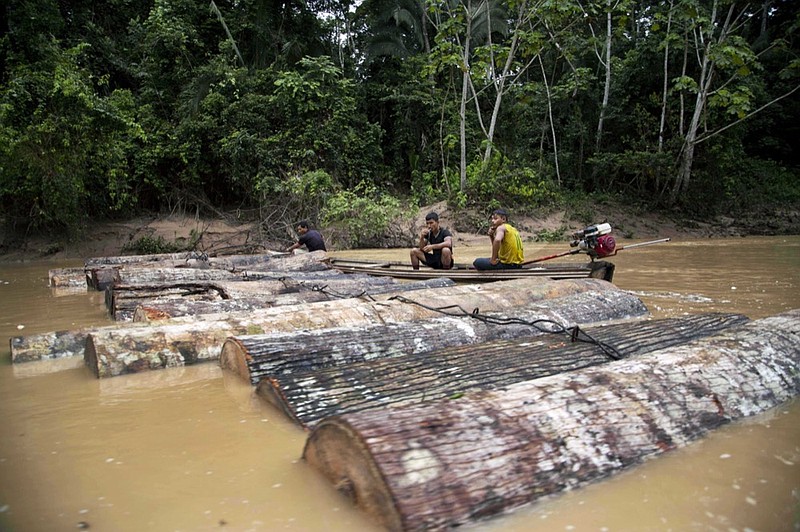LIMA, Peru (AP) - The top U.S. trade official contends Peru's government is not living up to its commitment to combat illegal logging in a case that could have broader implications as Washington debates ratifying a new North American free trade deal.
In a letter sent Dec. 21 to a congressman, U.S. Trade Representative Robert Lighthizer said he considered it "unacceptable" that Peru recently decided to move an independent agency monitoring the logging trade under the Environment Ministry.
He added in the letter to Rep. Richard Neal that the U.S. had "forcefully communicated" its position to Peru and said he would request consultations if the decision was not reversed, a first step toward potential sanctions. Neal, a Massachusetts Democrat, is taking over the chairmanship of the powerful House Ways and Means Committee now that his party is in control of the U.S. House.
The letter, a copy of which was obtained Thursday by The Associated Press, was sent in response to House Democrats who wrote the U.S. trade representative asking him to step in after Peru issued a decree stripping the forest auditor's office of its independence in violation of the trade agreement.
In a statement, Peru's Ministry of Foreign Trade and Tourism said that the nation is respectful of international treaties and that the forest inspection agency's independence remains intact despite the change.
The case could mark a first for the U.S. in taking potential punitive measures against an international partner accused of violating environmental protections in a free trade deal. Lawmakers are paying close attention as a sign of how strictly the Trump administration might enforce protections in the revamped North America trade deal, which has been signed by the president and will go before Congress.
Illegal logging has long been an issue in Peru, where the World Bank estimates 80 percent of timber exports are illegal. Companies are required to obtain permits showing the wood comes from approved harvesting areas, but prosecutors say that for years regional forestry officials have signed off on paperwork falsely stating the origin of timber.
The 2006 U.S.-Peru free trade pact included what was considered a groundbreaking environmental agreement in which Peru agreed to allow the Agency for the Supervision of Forest Resources to operate as a separate independent agency. The U.S. has spent more than $90 million in forest-protection aid and other assistance to Peru.
"To do this type of work requires autonomy," said Julia Urrunaga, director of the nonprofit Environmental Investigation Agency's Peru program.
An April 2017 investigation by the AP found Peru's government has repeatedly undermined Washington's efforts to get it to clean up its corrupt timber trade and is failing to meet the environmental requirements established in the accord.
In one of the most notorious cases, U.S. Department of Homeland Security investigators in Houston impounded 1,770 metric tons of Amazon rainforest wood from a rusty freighter - enough to cover three football fields.
The seizure was considered a rare victory against organized crime, but the director of Peru's forest inspection service was soon dismissed. Following his removal, inspections to detect illegally harvested timber were scaled back and prosecutions remained slow to advance.
Peru's Agency for the Supervision of Forest Resources, known by its Spanish acronym, OSINFOR, is responsible for investigating the origin of the country's timber exports, shining a light on discrepancies that could indicate illegal harvesting. The agency is considered a thorn for industry advocates seeking timber concessions.
Rolando Navarro, who was fired as head of the forestry inspection service in January 2016 after effective enforcement that led to record seizures of illegal wood, said Thursday that the agency has since been largely crippled by Peru's government. Key inspectors quit as morale sank and the agency began to avoid inspecting zones where illegal logging was known to be rampant, he said.
"All this time they've made every effort to weaken OSINFOR," he said from Washington, where he is a fellow at the nonprofit Center for International Environmental Law.
If the U.S. trade representative does request consultations with Peru and the talks do not resolve the matter, the case would advance through a lengthy road that could end in trade sanctions.
Urrunaga said she considered Lighthizer's letter an important step in making sure Peru meets the protections it agreed to in the deal.
"I hope this can really help resolve matters without needing sanctions," she said.
